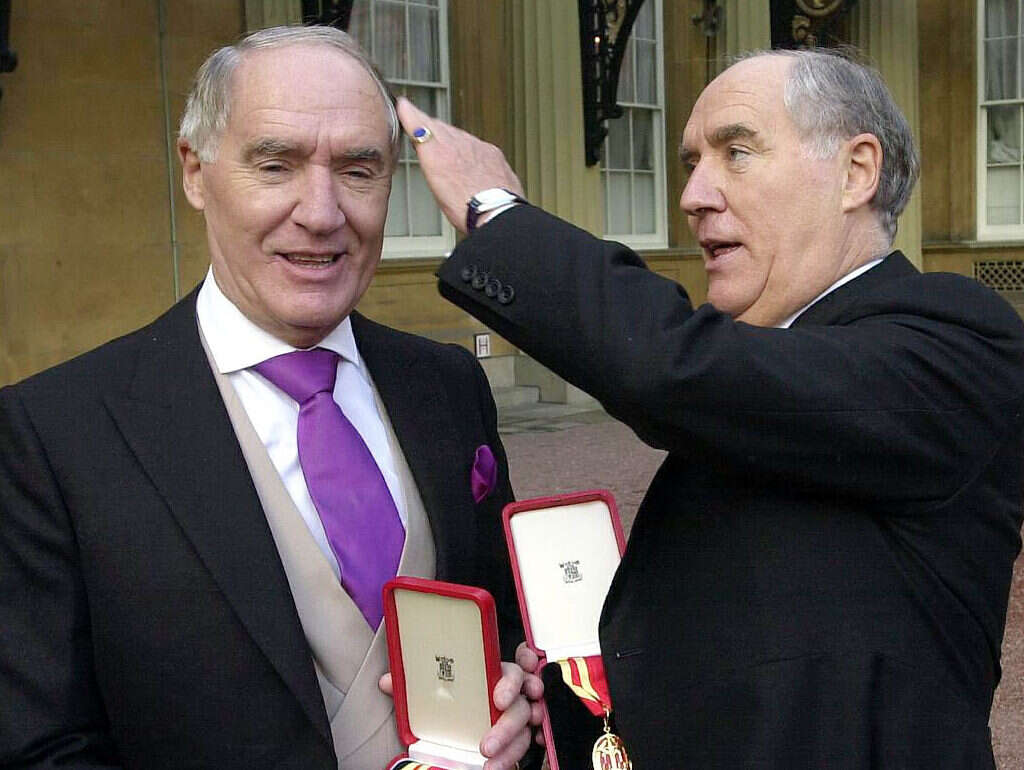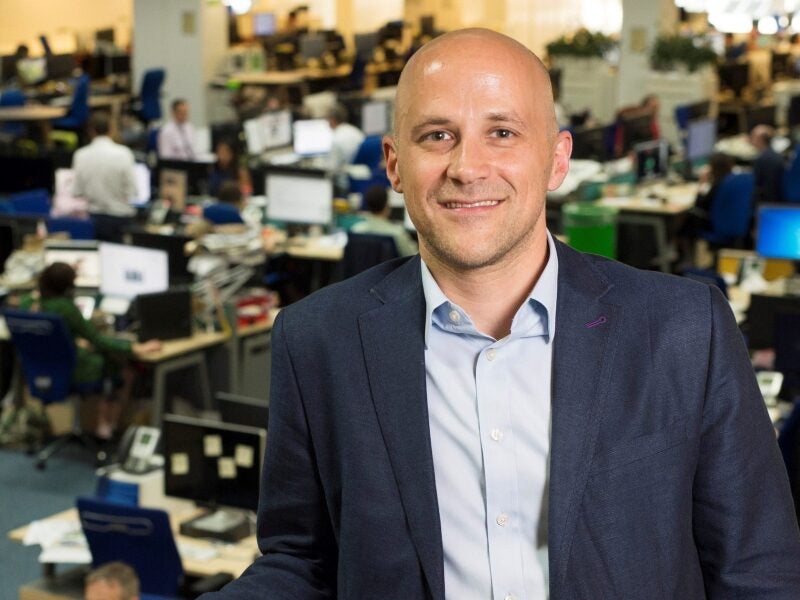
The Telegraph Media Group has had the same ownership since 2004 but is up for sale after being repossessed by Lloyds Banking Group over an outstanding debt reportedly worth around £1bn.
The group includes Telegraph properties The Daily Telegraph, Sunday Telegraph, Telegraph.co.uk, The Telegraph Magazine and the Telegraph app. It has also owned Chelsea Magazine Company since March this year.
Who founded The Telegraph?
The Daily Telegraph and Courier was founded by British Army officer Colonel Arthur B Sleigh, reportedly to air a personal grievance against Prince George, Duke of Cambridge, in June 1855 after the abolition of stamp duty on newspapers made them more affordable for the general public.
However the first issue was not a success and the title was sold to its publisher, Joseph Moses Levy, who also owned The Sunday Times. That version became more successful and outsold The Times within a year, according to the Historic Newspapers website.
The print circulations of the Daily Telegraph and Sunday Telegraph are no longer made public through auditor ABC. Online, The Telegraph is currently the eighth biggest news website in the UK with an audience of 15.9 million in April, reaching 32% of the population, according to Press Gazette’s ranking.
Today The Telegraph remains one of the biggest upmarket (or broadsheet) newspaper titles in the UK alongside The Times and The Guardian, the newspaper has chosen to keep its circulation private. It now focuses on a subscription-led strategy and claims to be on course to hit 1m print and digital subscribers this year.
[Read more: Telegraph adds 2.5m monthly magazine readers with Chelsea Magazine Company buyout]
Who owns The Telegraph now?
In 2004 businessmen and twin brothers Sir Frederick Barclay and Sir David Barclay bought the Telegraph group – including The Spectator – from US publisher Hollinger International for £665m. Sir David died in 2021 after a short illness, while Sir Frederick is now aged 88.
In 2000, the Barclay brothers were knighted to recognise and acknowledge their important contribution to the medical research field and children’s charities. Their joint charitable foundation, created in 1989, has donated more than £15m.
The 2022 Sunday Times Rich List estimated Sir Frederick’s net worth at around £6.2bn.
Telegraph Media Group is part of Press Acquisitions Ltd which is part of Jersey-based May corporation which ultimately comes under Bermuda-based B.UK. The whole business is currently being run by receivers AlixPartners whilst a purchaser is sought.
What else do the Barclay Brothers own?
The Barclay brothers started out in hotels. One of their first investments was the Cadogan in London’s Sloane Street in 1968, as well as the Londonderry in Park Lane, and they then purchased the Kensington Palace in 1973. They ended up owning over 15 hotels in the 1980s.
Other hotels they have invested in include The Ritz in 1995 and the Mirabeau in Monte Carlo. They also purchased Sark, a small island in the English Channel, where they built their own castle, worth £60m, designed by neoclassical architect Quinlan Terry.
Their area of interest spread to the shipping industry, taking over the shipping and brewery group Ellerman Lines in 1983 for £47m. After selling the shipping company six years later, the pubs and breweries were sold for five times what they paid for the group originally.
The brothers then decided to go into the publishing industry, purchasing weekly paper The European in 1992, before it closed six years later, The Scotsman in 1995, which they sold in 2005 to Johnston Press, and Sunday Business out of receivership in 1997, before it closed about ten years later.
[Read more: What BuzzFeed News’s demise tells us about the future of online media]
How has the Telegraph changed under their ownership?
The Telegraph had long supported the Conservative Party, a stance that continued after the Barclay brothers took over. Sir David said: “We will not change the editorial position of The Daily Telegraph. It has a long-established editorial position which we respect and with which we do not intend to interfere.”
In 2005, The Daily Telegraph went through its first relaunch under the Barclays with the inclusion of a tabloid sports section and a business section. The same year, Simon Heffer, The Daily Mail’s political analyst and columnist, joined The Daily Telegraph as associate editor, and contributed to the first regular podcast by a news publication in the UK.
A year after the Barclay brothers’ purchase, The Telegraph offices moved from Canary Wharf to Victoria, with a more advanced newsroom that worked for both online and print. In 2006, the new name Telegraph Media Group was introduced to state the intention that The Telegraph was now a multimedia company.
From 2004 to the present day, there have been six editors at The Daily Telegraph. The current editor, Chris Evans, took over in 2014.
By 2021, the Telegraph Media Group’s total pre-tax profits since the Barclays acquisition reached £452m – still £213m less than the price they paid for it.
The publisher’s latest public results for 2021 showed pre-tax profits up by a third to £29.6m as its subscription strategy drove growth.

Why is the Telegraph being sold?
Lloyds Banking Group assumed control of Telegraph Media Group in June after around £1bn in loans were never repaid or resolved.
Sir David’s sons, chairman Aidan Barclay and his brother Howard, were removed from the board by AlixPartners who were appointed receivers of B.UK, the Telegraph and Spectator’s ultimate parent company.
Both the Telegraph and Spectator have been running as profitable companies and so staff within the company appeared to remain calm. One source told The Guardian: “The atmosphere is buoyant. A sale is good news for us, it’s exciting. The biggest problem is ownership. [The Barclay brothers] haven’t put a penny in: the success is from organic growth. You want a backer who is going to invest. We are part of a very complicated financial structure with lots of cash pledged all over the place.”
Sky News has reported that the receivers are targeting £600m for the titles, although others analysts have suggested £500m is more realistic.
This price tag narrows down the potential buyers. The Daily Mail and General Trust, which currently owns the Mail, Metro, i and New Scientist titles, has been suggested as one potential buyer although the acquisition could take it to about 50% of the daily newspaper market and any deal could therefore come under close scrutiny from the Competition and Markets Authority.
Other suggestions have been Rupert Murdoch’s News UK, which already owns the Times and Sun titles in the UK, German publisher Axel Springer, The News Movement co-founder and former Telegraph editor William Lewis, and GB News and Unherd investor Paul Marshall.
Email pged@pressgazette.co.uk to point out mistakes, provide story tips or send in a letter for publication on our "Letters Page" blog
